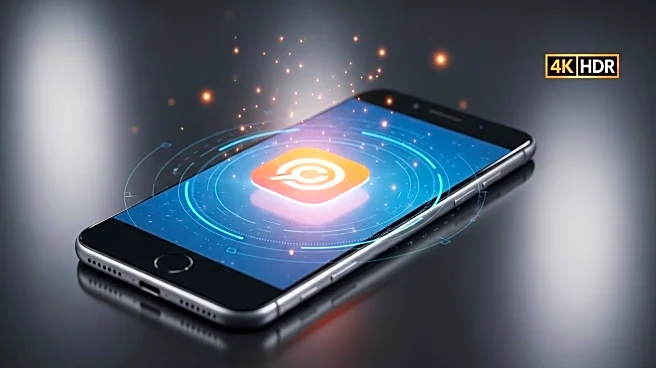What's Happening?
OpenAI's latest text-to-video artificial intelligence tool, Sora, has achieved over one million downloads within five days of its release, surpassing the initial download rate of ChatGPT. The app, which generates realistic ten-second videos from text prompts, has quickly risen to the top of the Apple App Store charts in the United States. The rapid growth was announced by Sora's head, Bill Peebles, who noted the app's availability was limited to North American users with invites. Despite its limited release, Sora's popularity has surged, showcasing the public's interest in AI-driven creative tools. The app's unique ability to create lifelike videos has drawn comparisons to popular platforms like TikTok, as users explore the boundaries of OpenAI's creative capabilities.
Why It's Important?
The swift success of Sora highlights the growing demand for AI-driven content creation tools in the digital landscape. This development underscores the potential for AI to revolutionize how users interact with media, offering new avenues for creativity and expression. The app's popularity may influence other tech companies to invest in similar technologies, potentially leading to increased competition in the AI content creation market. Additionally, the success of Sora could impact the broader tech industry by setting new standards for app engagement and user interaction, prompting companies to innovate and adapt to changing consumer preferences.
What's Next?
As Sora continues to gain traction, OpenAI may expand its availability beyond North America, potentially increasing its user base and influence in the global market. The app's success could lead to further developments in AI video creation technology, with OpenAI possibly introducing new features or enhancements to maintain user interest. Other tech companies might respond by developing competing platforms or integrating similar AI capabilities into their existing services. The ongoing evolution of AI-driven content creation tools could also prompt discussions around ethical considerations and the impact of AI on creative industries.
Beyond the Headlines
The rise of AI tools like Sora raises questions about the ethical implications of AI-generated content, particularly concerning intellectual property and the authenticity of digital media. As AI continues to advance, it may challenge traditional notions of creativity and authorship, prompting legal and cultural debates. Additionally, the widespread use of AI in content creation could influence societal perceptions of reality, as lifelike videos blur the lines between genuine and artificial experiences.









